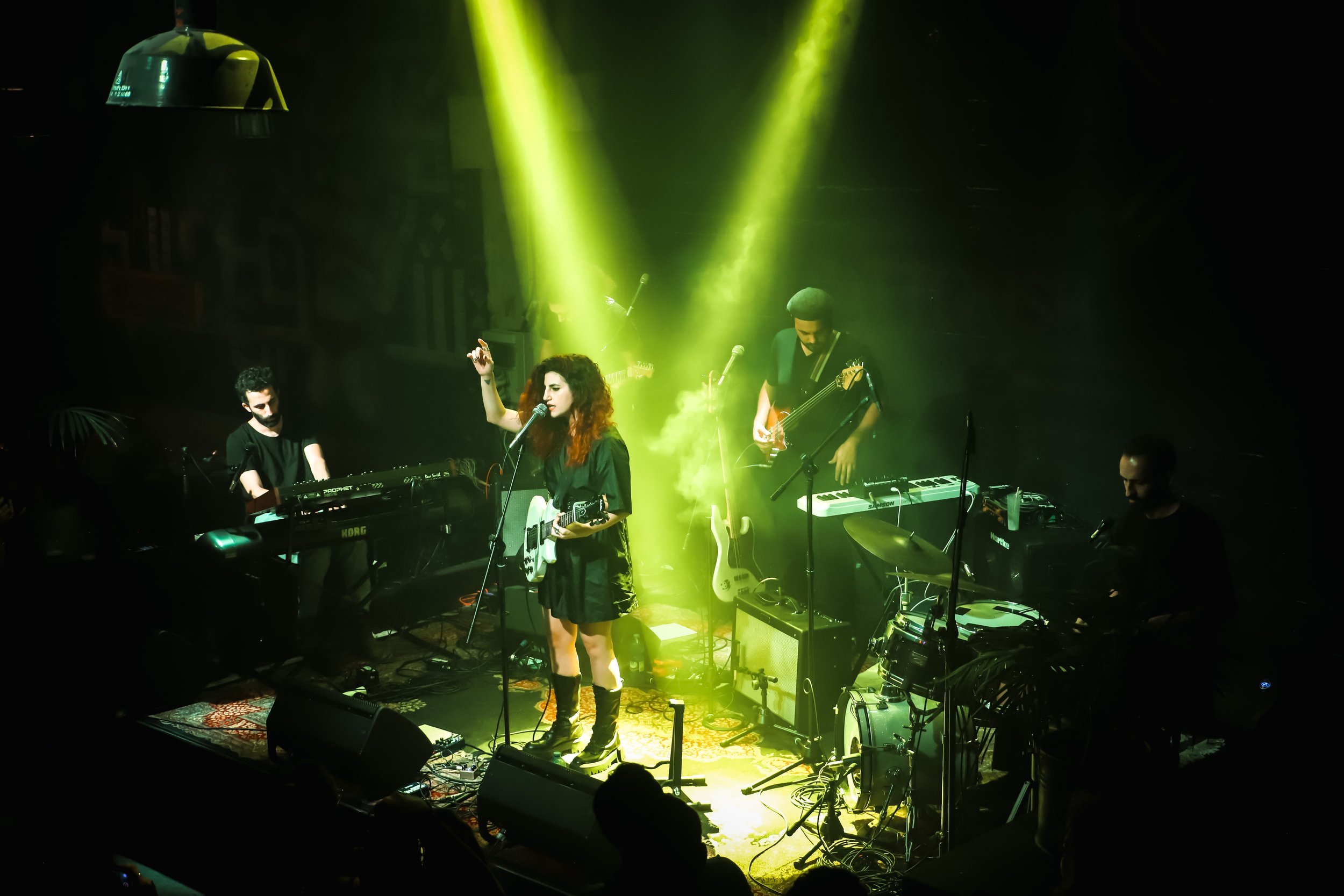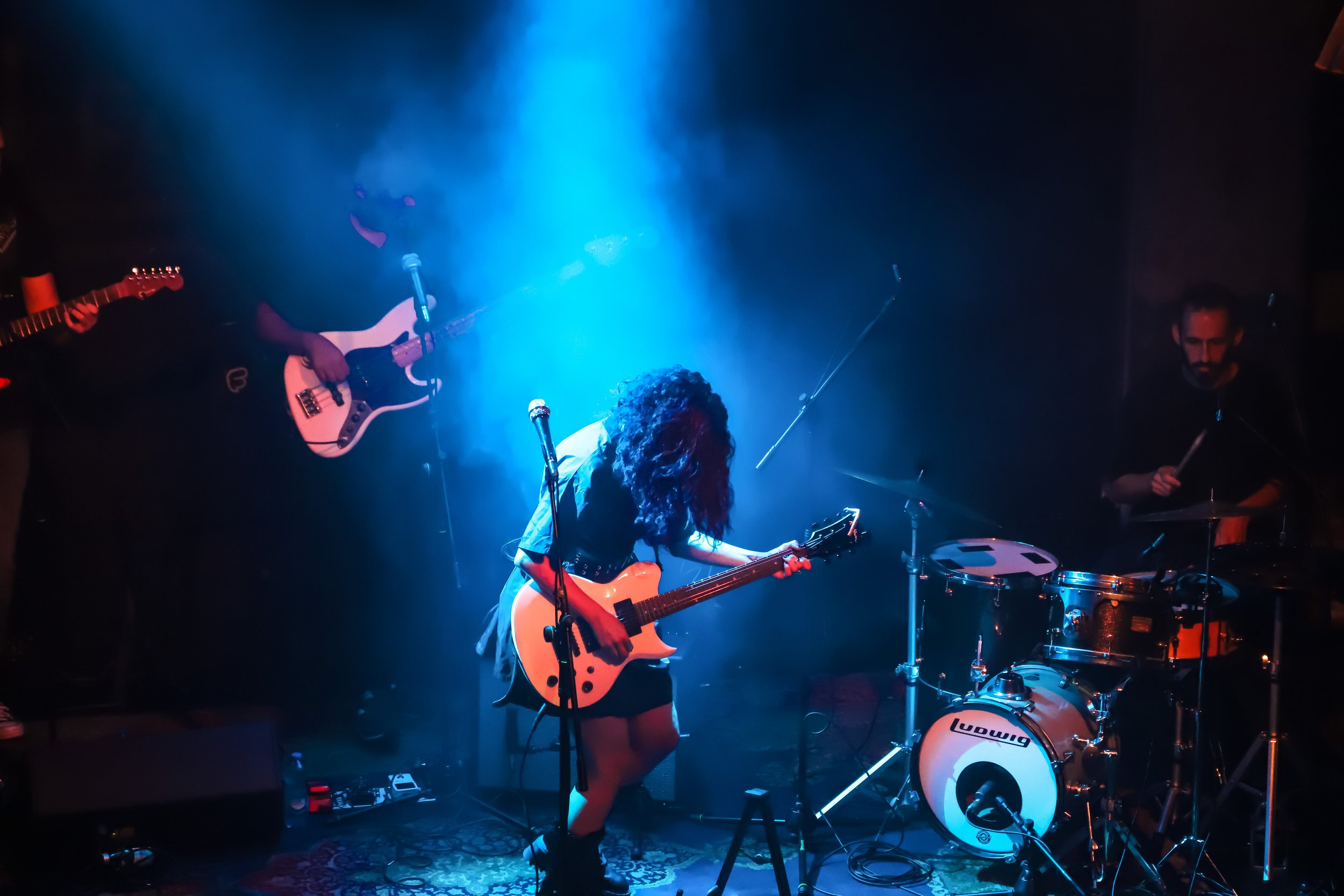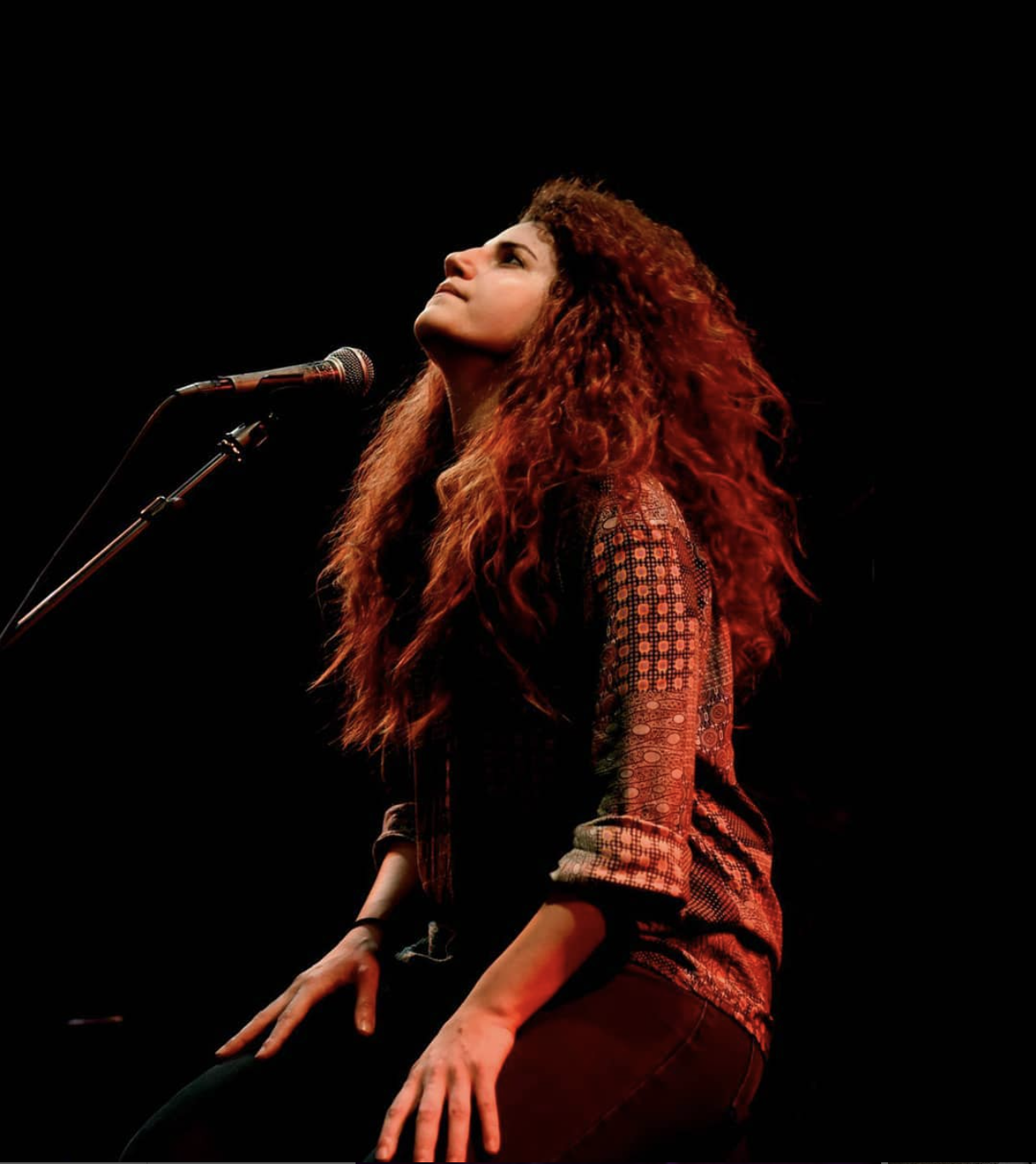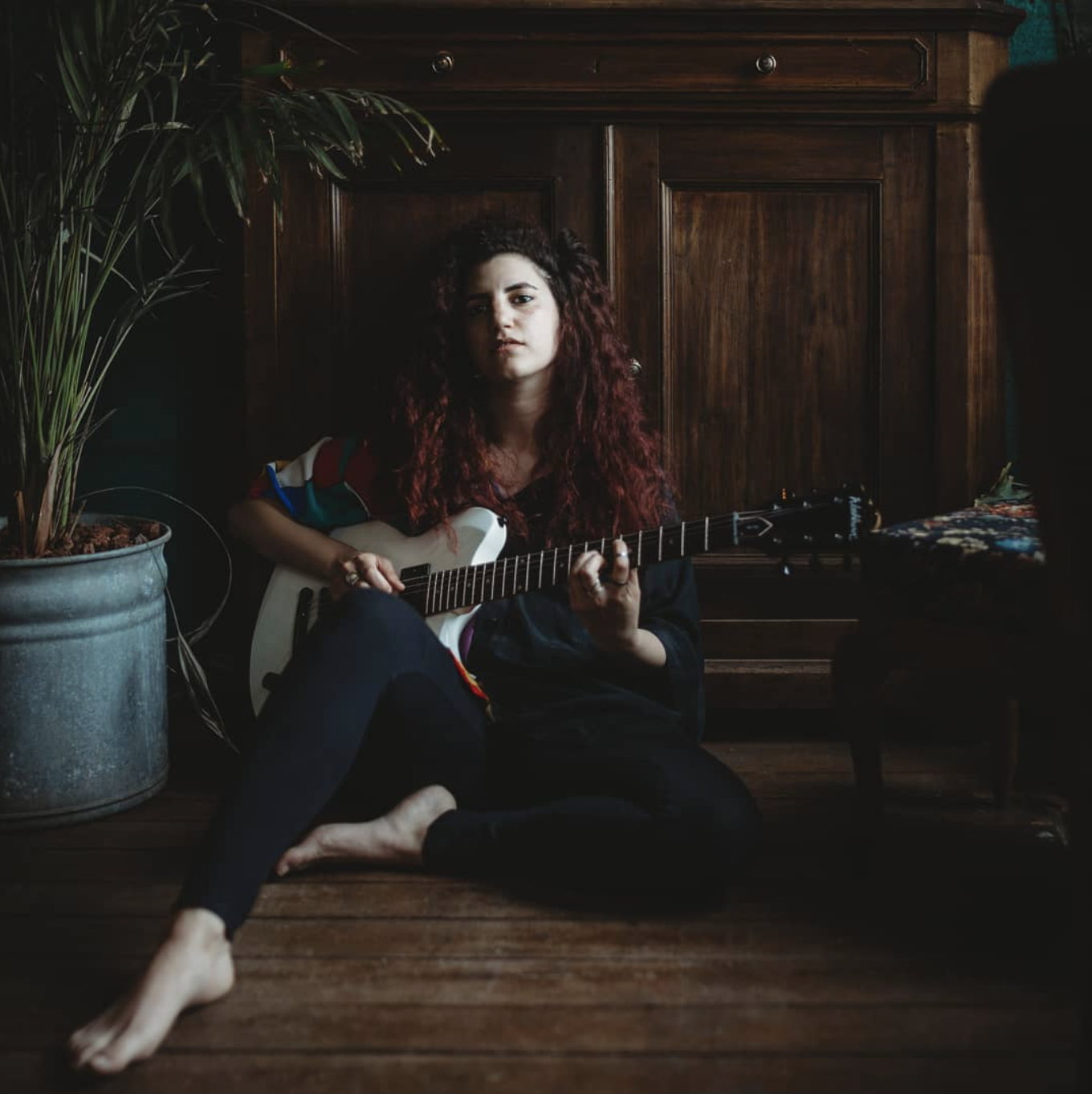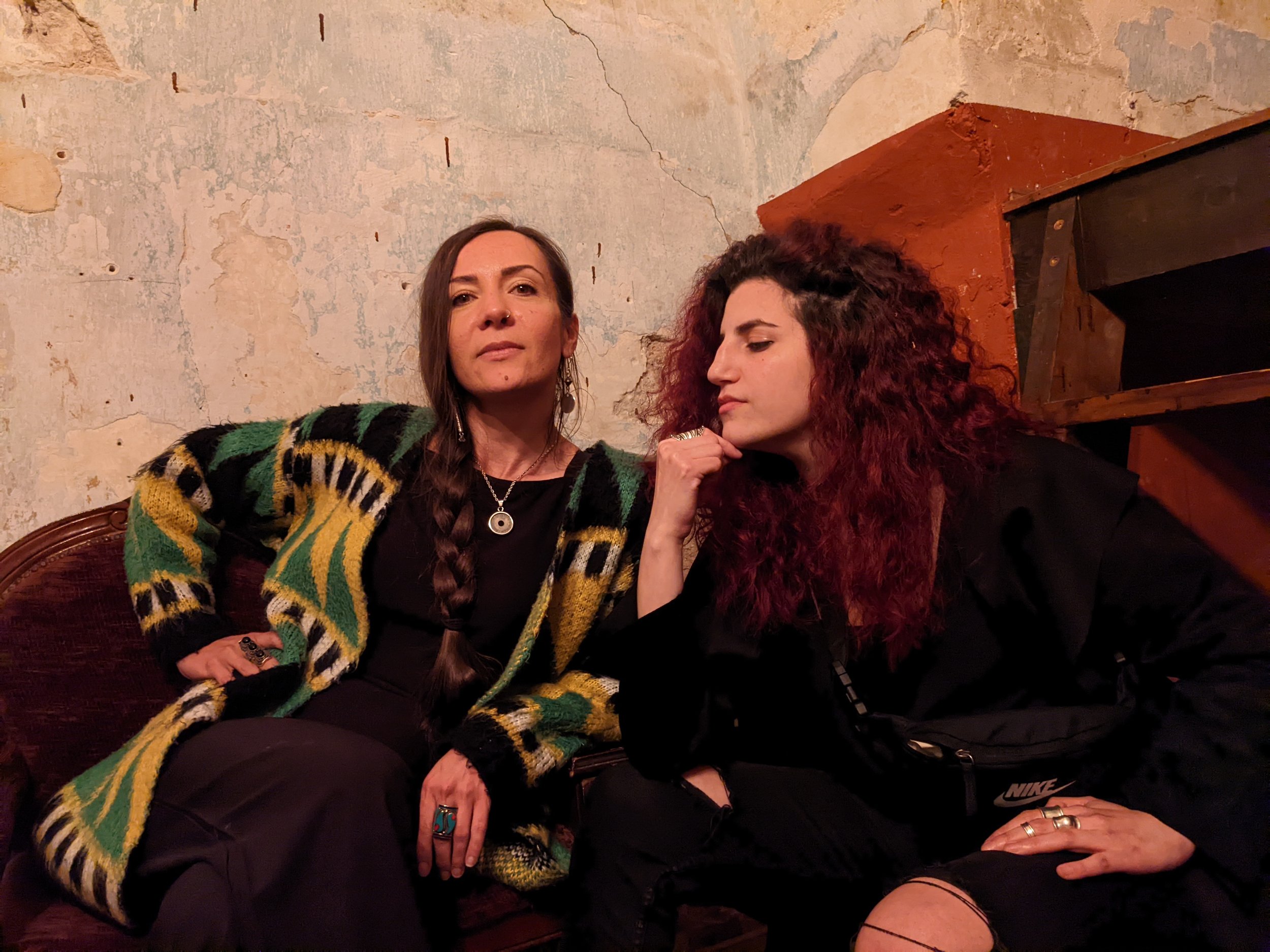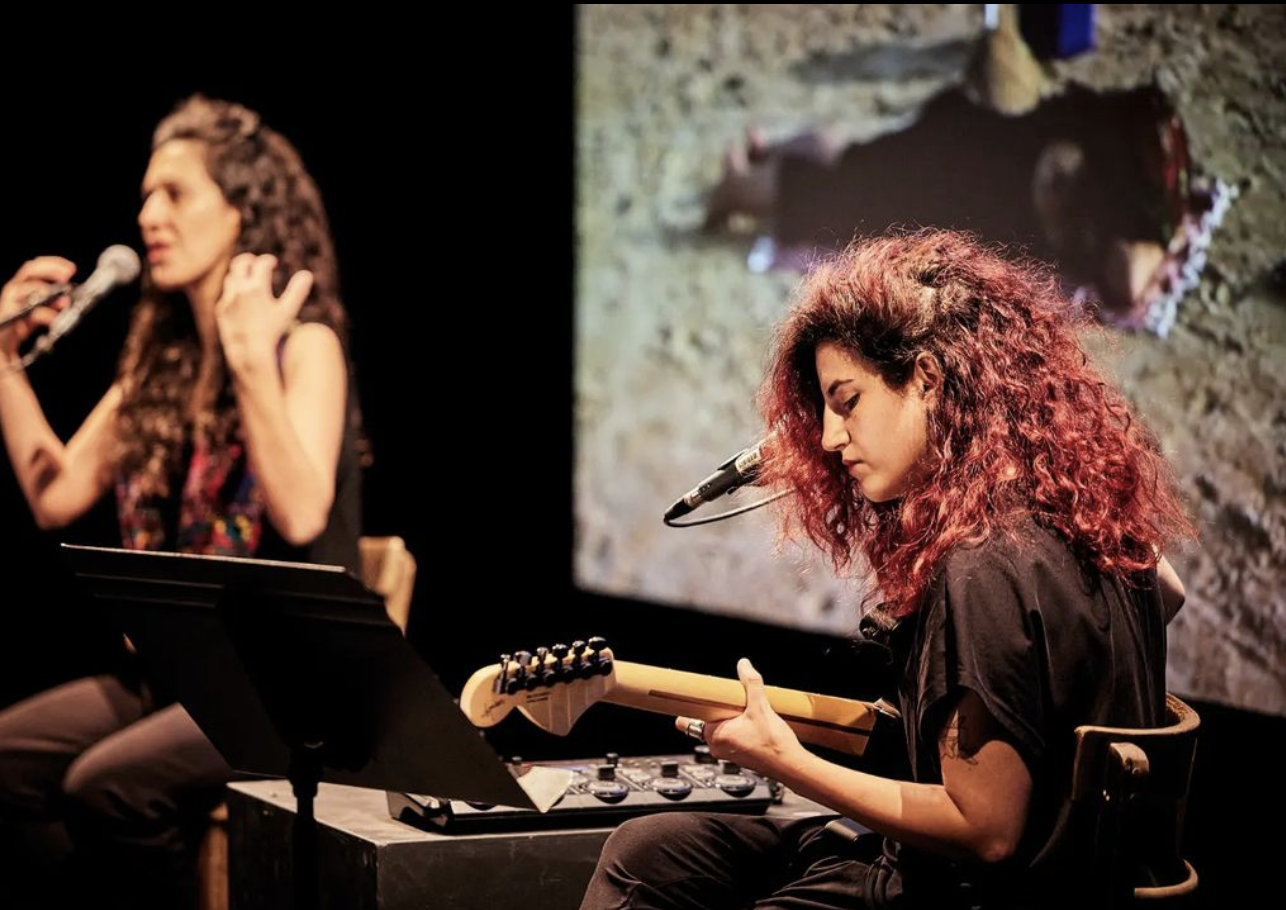The Rocky Road to Ramallah
Words by Christina Hazboun and Haya Zaatry
Spring is knocking at the doors and flowers are blooming all across Palestine, as we emerge from a hard winter. It feels like the new blooms have been nourished with the blood of killed Palestinians over the past few months. Yet I am excited to finally see Nazarene born, Haifa based Palestinian singer and composer Haya Zaatry bring her debut album “Rahawan” to Ramallah at The Qattan Foundation this March. It is a much anticipated performance, as it has already been postponed twice, once on Thursday 13th October, then a second time on Thursday 1st December. Both postponements came as a joint decision between me, Haya Zaatry and The Qattan Foundation to respect the state of collective mourning and general strikes announced after Palestinians were killed in Nablus, and other parts of the West Bank .
As Haya’s manager, we work closely together and check in on the general climate of what’s happening in Palestine. Her being in Haifa and me being from Bethlehem mean that there is an intricate web of social and geo-political elements that we have to juggle to make a performance happen in “The West Bank”. We do our regular communication of care to look into how we’re feeling and plan for performances as part of her tour across a conceptualised borderless Palestine, which is a cornerstone of her debut album “Rahawan”. It has become a running joke between us to ask “Do you think it will get postponed again?”. Two days before the performance, which was set to take place on March 11th I receive that call: “Hello Christina, we have just received a call from the police, asking us to cancel any performances, as they don’t want any “sakhab” (a word in Arabic to describe clatter and clamor)”, tells me the person responsible for communications from the A. M. Qattan Foundation. This comes as no surprise, given the series of killings and the invasion of Huwara village near Nablus by the occupying Israeli forces, which resulted in a general strike on Wednesday 8th March amidst a climate of protests, strikes and escalating violence against Palestinians. It appears that the Palestinian Authority took the decision not to allow any loud music to be played or performed anywhere from Thursday 9th March to Sunday 12th and thus all sound was to be muted to amplify the sense of grief.
I get on the phone to Haya to break the news to her; “Hayyoush (an endearing way to say her name), the show is canceled again”. We didn’t know whether to laugh or cry at this stage. Haya was just rolling her cigarette outside Khashabi Theatre in Haifa, following a powerful talk about female Palestinian prisoners incarcerated in Israeli prisons. “I did not even allow the metaphor to form in my head. How could I? I can watch ships cross the Mediterranean from my window. I can move freely. I can travel to Ramallah, yet I felt like “collateral damage”. Am I even allowed to feel sad about a canceled performance, when the situation is so violent and tense? When there are people dying?”. Thus everything becomes relative in a state of violence.
As a Palestinian with an Israeli ID, it is possible for Haya to reach Ramallah. However, for her fans, music lovers, and friends in Ramallah, who made plans to go out on the night of the 11th of March, attend a performance, dance a little bit and forget about their dangerous reality, everything was postponed. As Palestinian citizens of the West Bank, they do not have the right to move freely and access areas like Haifa, Nazareth or Jerusalem which fall under the Israeli state, unless they obtain a permit from the relevant Israeli military governor. The questions of who can attend a performance, where can a performance take place and who can travel to perform, become deep and essential questions. The musician becomes “an element in a new network of power” and hence their function is not restricted to spectacle and performance, but extends to the forming of sociality or gathering that creates feelings of unity.
“What do they mean by “sakhab””? asked Haya. And this is perhaps where our beliefs and ethos collide, in a world where voicing ourselves through speech, music and sound, is so relevant to both of us. Haya’s album “Rahawan” was born as a result of her discovering her great-great grandmother’s Passport issued by the British in 1935, which states that she was born in Damascus in 1890 and resided in Nazareth. At that point, Haya, a Palestinian from Nazareth, with an Israeli Passport and nationality, realized that she did not have the same freedom of movement that her great-great grandmother Nazira Rahawan enjoyed. Singing of love, loss and breaking social, gender and geographic borders, the album transmits the architecture of a Palestine once embedded in the fabric of the Levante, that is now severed by decades of colonial rule.The album ties together geographically fragmented regions, as most of it was recorded in Majdal Shams - The occupied Syrian Golan Heights, one of the songs “Lebnayat” was recorded on a tape recorder in Haya’s grandmother’s Hakura (the term used for a Palestinian garden in Nazareth and northern Palestine), and the trumpets in the tracks “Alouli” and “Winds of Jawlan” were recorded in Ramallah.
The intro song to the album, embellished with riffs of electric guitars and drone sounds from the depths of space, starts with Haya’s vocals singing:
The young women are walking
Coming to my homeland
What ordinary news
Under my sky
The young women are carrying
My dreams and have forgotten
Their dreams
Under my sky
Yet as women and as humans, we are unable to arrive in Ramallah to make it for a musical performance, an otherwise ordinary occurrence in the lives of many inhabiting the global north. What has been happening to us is beyond the simple fact of a performance deferred, expectations suspended and plans altered. There is a heavy emotional load invested by us as musicians, cultural operators, cultural institutions and audiences, structuring our lives around musical moments. A performance requires long hours of rehearsals, promotion and pre-production and organization with venues and cultural organizations who host the performance. The cancellation does not stop with the disappearance of the performance itself, but it cancels the industrious work of a whole group of actors working behind the scenes to make a moment of music happen for people, and allow them a breeze of fresh air, before the next moment of mourning arrives.
It is also followed by a weekend full of more emotional and physical labor of shaping the communication, announcing the cancellation, and investigating further as to why yet another performance of Haya’s has been canceled. Is it because of what she stands for? Is it because of the lyrical content? Is it her identity? So many questions start to crop up, in an attempt to understand an intricate web of circumstances, perceptions and elements of a music performance in a colonial context.
The spaces that we have for cultural performances are few and far between, and there are even less spaces for musical performances. While planning for the “Rahwan” tour, we carefully thought of cities and venues across all of historic Palestine and the Levante, which were accessible to Haya and the band. Yet that “space of performance” goes beyond the physical space. Most halls available for Palestinians, whether in the West Bank or inside Israel, are not adequately equipped for independent music performances. Ticket sales still happen on paper or on the door at many venues as our online ticketing websites are a fairly young phenomenon, and equipment hire is often a huge challenge. As a Palestinian living in a settler colonial state, Haya’s options for performance are also limited, as she cannot utilize many of the modern equipped performance halls easily available to Israeli citizens. This comes from a conscious decision to work with independent Palestinian venues and venues that encourage and welcome the presence of diverse Palestinian identities.
The gender layer calls into question many other elements, as we choose carefully what venues can be safe for women and allow for freedom of expression. Those spaces are shrinking and finding suitable and safe spaces for the performance of music that challenges dominant narratives of society and geography doesn’t make things easier. When talking to one festival director about a possible performance for Haya last summer amidst a predominantly male-line-up I was told that “Performing would harm her”. We were both shocked at hearing such a statement, which presupposes a majority male audience in a society suffering from patriarchal, colonial and hegemonic maladies. Putting a woman on the stage in an open space, becomes a challenge to the dominant narrative. Unless it’s an occurrence which fits nicely within the “repetitive” (in Jacques Attali’s terms) of the mass production machine.
And so, as Haya sings in “Tabula Rasa”:
This land is plundered
It’s plundered twice or more
The first one’s traces remain here
The second one is still wandering around
Life carries on, with people looking for rays of light to shine through the ever expanding gown of darkness where music, noise and silence become reflections of existence. And music, often perceived as mere entertainment, is relegated to the margins of priorities. What we should not forget though is that music is the ordering of time, it witfully embeds within it stories and histories of society, while being able to generate change in thought, mood and events.
You can follow Christina and Haya’s journey on @chrishazboun and @hayazaatry

